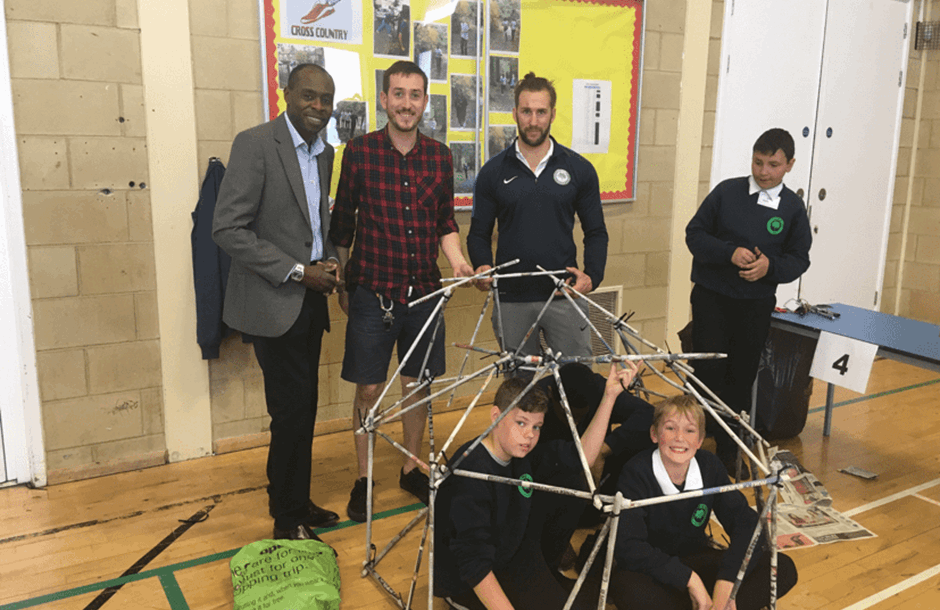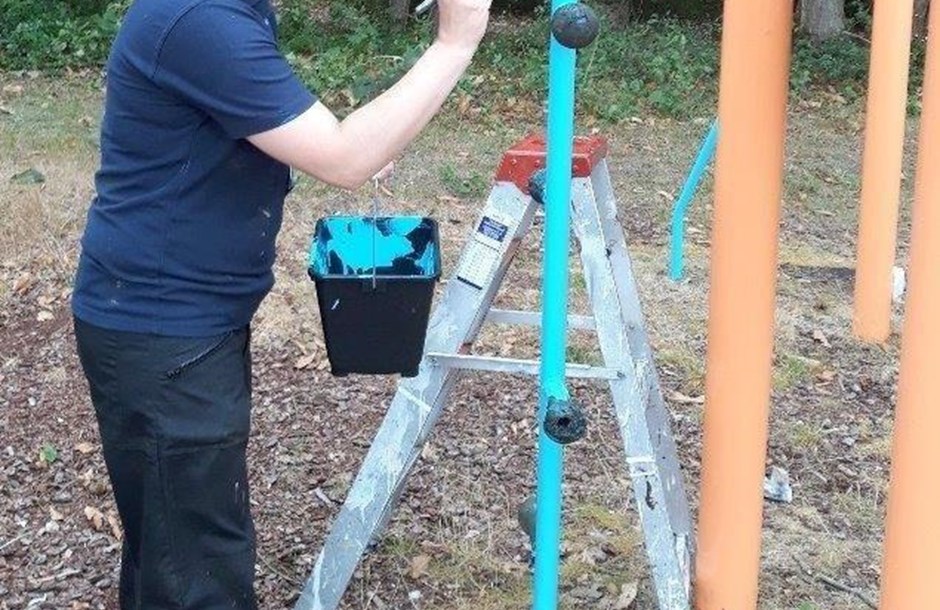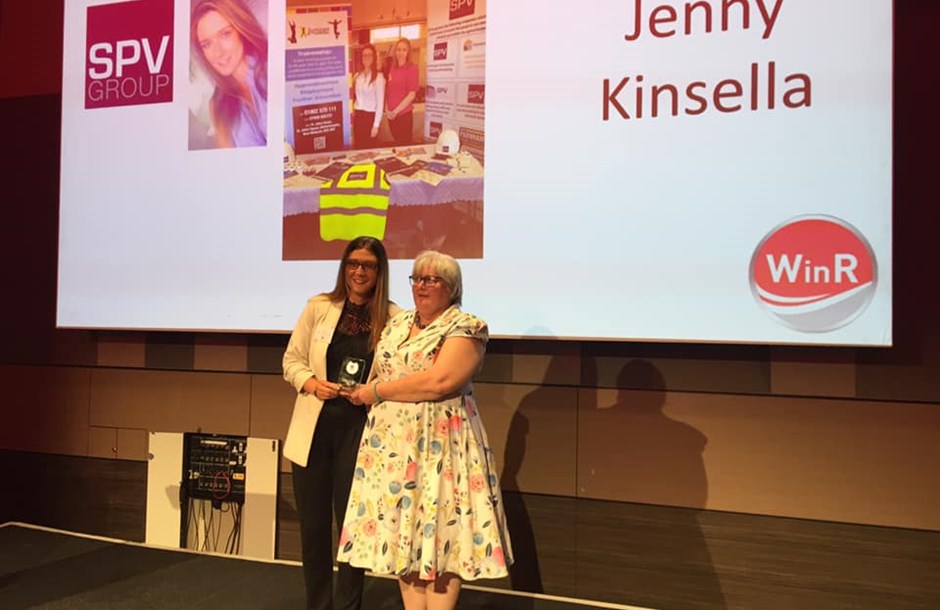How to get into construction after taking your GCSEs
With so many different options to begin a career in construction, it can be tricky deciding which route is best for you.
So… we asked three people in construction what advice they would give to people thinking about getting into the industry after their GCSEs, and we found out which route they took to get into their current role.
Zaid Abioye - Project Manager, OHOB Building Contractors

Any subject is relevant
My dad worked in the draughtsman’s office so I was fascinated as a child with all the big plans and blueprints.
I studied English, maths, physics, biology, chemistry and technical drawing for my GCSEs. I then took A-levels in physics, maths and chemistry. Maths and physics are probably the most important subjects if you want to be an engineer. And chemistry can be useful too. If you’re interested in general construction, any subject is relevant.
Having the ability to communicate well is also really important. You’ll also need to be interested in practical stuff, like being good with your hands.
I studied at university for 4 years and had some practical experience before I become a chartered member of the Chartered Institute of Building (CIOB) .
Inspiring the next generation
Wherever I go, I always leave a monument that I can go back to, a physical structure that I can say I was a part of. This is always gratifying.
I visit schools to talk about the construction industry and encourage young people to take it on as a profession.
I recently went to New Woodlands School in Bromley to take part in an initiative aimed at giving young students an opportunity to understand the construction industry.
To become an engineer
If you want to be an engineer, the best approach would be to go to a technical college after your GCSEs. From there you can head to university to complete your studies.
You could also think about doing an apprenticeship with a company and work your way up from there.
Rosanna Giarraputo - Community Engagement Coordinator, Bell Group

Why construction?
I’m a really practical person. I like finding out how things work and explaining it to the people I work with and the people in the community.
No two days in construction are the same. One day I can help out with painting on a community project, the next day I’ll be chatting to clients in a care home. I love to speak to people and hear their life stories.
Career change
Getting into construction was a career change for me. I spent years working in supply chain merchandising and I’d reached a point where I’d done everything I set out to do professionally.
Working in this job is the longest time I’ve ever worked for the same company. It never gets boring - each day I work for different people on different projects for different clients.
How my GCSEs helped
I studied GCSEs in maths, English, biology, music, history, religious studies and languages (Spanish and French). I went on to do A-levels in English, Spanish and music.
I didn’t think about a career in construction until later, but many of my GCSE subjects were relevant, particularly English.
English helped develop my communication skills - something that’s key to my role as a community engagement coordinator.
If you’ve just finished your GCSEs and are thinking about a career in construction, just go for it. It’s a growing industry and there’s money to be made. Construction companies are always looking for enthusiastic people.
Training on the job
I did a lot of on-the-job training for my role. Being out with the site team and getting involved with the voluntary work experience placements we offer really helped me learn about construction.
Being a construction ambassador
As a Construction Ambassador I speak to young people and they get to ask me all the questions about how the ‘world of construction’ works.
Some young people really know what they want to do, others don’t, but there are so many different roles in construction - from painting and decorating, to my role in community engagement.
There are so many ways to get into construction - you just need to find out what works for you.
Jennifer Kinsella - Office Administrator, SPV Group

A family business
I left school when I was 16 and worked as a dental nurse and I quickly realised it wasn’t what I wanted to do for the rest of my life.
My father, uncle and cousins all worked in construction. I would always hear them talking about the places they’d been working, in lots of different jobs all over the county.
When I was 17, a receptionist job was going at Howard Evans Roofing (part of SPV Group) so I applied.
Learning on the job
I got 5 GCSEs, but there were no official qualifications I needed to get started.
A lot of the job is learnt onsite. Construction is hands-on and very practical. I had a really good mentor, Kate Whatley, who is still my mentor 15 years later.
After a few years it was clear I needed to do some kind of admin qualification, so I did a Level 2 NVQ Certificate in Business Administration. I studied at night while working full-time.
I went on to do mental health nursing and this helps me safeguard the mental health of the engineers I work closely with.
I’m always faced with new challenges and I learnt a lot by being thrown in the deep end.
Many people come into the construction industry because of the opportunities to progress that you don’t get anywhere else.
A skills shortage
We go out to exhibition venues like the NEC, Birmingham where we (SPV Group) have a stand, and we talk to young people about opportunities in construction.
We decided to set up a training centre because we noticed the skills gap getting wider. We help any 16 to 18-year-olds who are interested in a career in construction. This year, we’re helping 20 young people get construction site-ready so they can go into employment or on to an apprenticeship. We’re working with local businesses to find out what skills they’re looking for.
At the end of 24 weeks, our students will have their CSCS Card and hands-on industry-specific practical training. They’ll also have a Level 1 Introduction to Construction and qualifications in manual handling and asbestos awareness. Students can also do GCSE retakes or English and maths qualifications.
We’ve managed to find all our trainees jobs and apprenticeships in the construction industry.
There’s not one GCSE or A-level you have to do
A lot of people who finish school don’t want to go back to an academic environment.
My advice is to show confidence. Don’t worry too much about your results. If you want to qualify as a quantity surveyor, you can do it later.
Be practical and don’t worry about getting things wrong. It’s a very hands-on industry.
Find a career in construction
Find out which construction roles suit your skills and interests by using our career explorer.
Become an apprentice
Earn while you learn by starting an apprenticeship.
